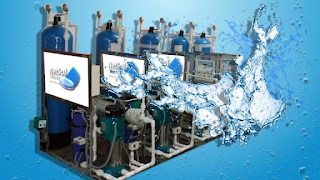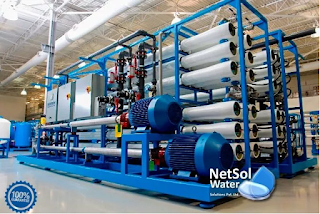Are You Looking For An Industrial RO Plant Manufacturer In India?
If you're in need of an industrial RO plant manufacturer in India, you're in luck! India is home to many reputable manufacturers that offer high-quality RO plants for various industrial applications. In this blog, we will discuss the factors to consider when choosing an industrial RO plant manufacturer in India and some of the top manufacturers in the country. Factors to Consider When Choosing an Industrial RO Plant Manufacturer in India Experience and Expertise: Choose a manufacturer with significant experience and expertise in designing and manufacturing industrial RO plants. An experienced manufacturer can ensure that the plant meets your specific requirements and delivers high-quality water for your industrial applications. Quality and Reliability: Choose a manufacturer that offers high-quality and reliable RO plants. Look for a manufacturer that uses advanced technologies and high-quality materials to ensure that the







